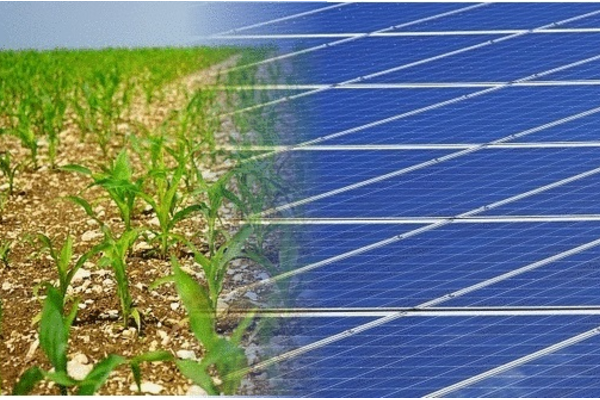
Harvesting the Sun Twice: Enhancing livelihoods in East African agricultural communities through innovations in solar energy
This project aims to provide a real test case for the application and adaptation of Agrivoltaic systems to the needs of communities in East Africa.
Context
While ground-mounted arrays of solar panels offer several benefits related to clean energy provision, they miss opportunities to deliver livelihood benefits in addition to electricity supply, and in some cases can actually detract from other development goals.
Agrivoltaic energy systems, however, can combine the delivery of solar electricity, crop production, and rainwater harvesting on the same land area. Instead of being mounted close to the ground like traditional solar power arrays, agrivoltaic systems are constructed several meters high, with gaps between the arrays, enabling crops to be grown underneath.
Many locations in East Africa have high light intensity, high temperatures and low rainfall. Agrivoltaic energy systems can significantly improve the productivity of crops because the shade provided by the arrays reduces heat stress and water loss.
Working with African solar developers and a Kenyan agribusiness company, as well as non-governmental organisations, regional political organisations, local communities and workers, researchers have identified project implementation sites in Kenya and Uganda.
Aims and objectives
The project seeks to reveal if agrivoltaic technology can lead to improved access to energy and increased incomes through production of higher-value crops as well as identify the barriers within local communities to the uptake of the technology.
The researchers will uncover which economic, social, cultural and political factors help or hinder the expansion of agrivoltaic systems in this region. They will also assess how agrivoltaic technology can best be co-designed with the users and seek input from national and regional policymakers to inform the potential rollout of systems across East Africa and beyond.
- Dr Karen Parkhill (Department of Environment and Geography)
- Dr Steve Cinderby (SEI-York)
Principal Investigator
- Prof Sue Hartley (University of Sheffield)
Co-Investigators
- Dr Matthew Cotton (Teeside University)
- Dr Christine Lamanna (World Agroforestry Centre)
UKRI
- World Agroforestry Centre